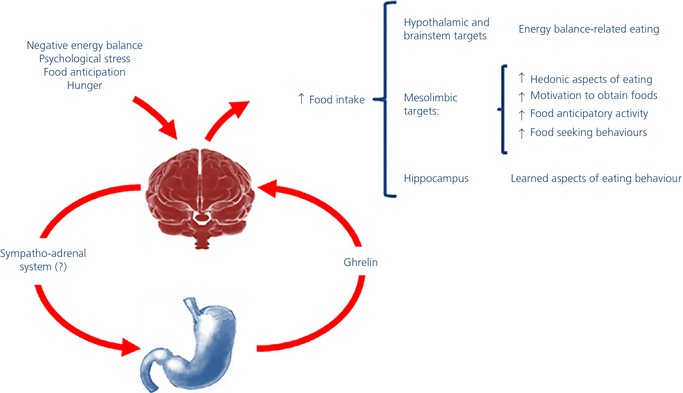Figure 1.

Endocrine gut–brain reward axis: a model of the effects of ghrelin on eating behaviour. Some specific conditions are known to influence eating regulation by affecting homeostatic brain circuits, which drive food intake depending on energy store levels, and/or reward brain circuits, which drive consumption based on the rewarding properties of foods. Several lines of evidence suggest a key role for the ghrelin/growth hormone secretagogue receptor type 1A system in mediating these eating behaviours. These specific conditions increase ghrelin, which in turn reaches the brain where, upon interaction with its receptor on dopaminergic neurones in the ventral tegmental area and likely in other brain nuclei, mediates an integrated and complex eating behavioural response.
